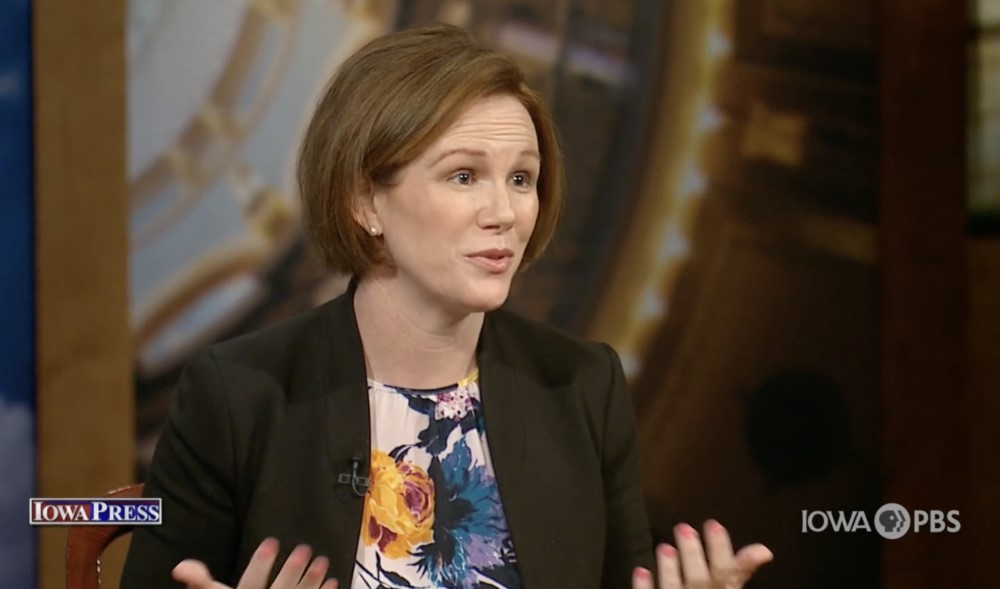It’s gonna be a fantastic day
Such marvelousness
It’s gonna bring, got a pocket full of songs that I’m gonna sing
And I’m ready to take on anything
HOUSTON — Before starting her presentation on factors affecting physician associate’s (PA’s) work-life balance at the American Academy of Physician Associates (AAPA) 2024 Conference & Expo in Houston, Mirela Bruza-Augatis, PhD, MS, PA-C, a researcher at the National Commission on Certification of Physician Assistants (NCCPA), took a moment to play “Get Back Up Again,” a song from the popular children’s movie Trolls.
“I realize the question on everybody’s mind is, ‘Work-life balance? What’s that?'” she said. “And that’s the song I think about when I consider work-life balance. Because I feel like we get down, but we get back up and do it all over again.”
Bruza-Augatis said that being able to get up and do it all over again each day requires finding a way to achieve the right work-life balance. While many studies have examined the relationship between clinician burnout and job satisfaction, there has been limited research on work-life balance in the PA community.
Bruza-Augatis and her colleagues at the NCCPA hope to identify factors that underlie a positive work-life balance so healthcare organizations can make more targeted improvements in the future. She presented the study results at a Research in Action session at this year’s AAPA conference.
Going Beyond Burnout
To date, Bruza-Augatis said, the studies examining work-life balance have shown that it’s almost always tied to burnout.
She told the PAs in attendance that one study that looked specifically at PAs discovered that PAs who reported an unsatisfactory work-life balance were nearly threefold more likely to be burned out. Another study of physicians looked at predictors of burnout and motivation to stay in the profession and noticed that there was a high correlation between work-life balance and all dimensions of burnout.
In Taking Control of Work Pressures: Medscape Physician Assistant Burnout Report 2023, 57% of PA respondents reported too many bureaucratic tasks like charting and paperwork, and 43% said that a lack of respect contributed to their burnout.
If a PA is burned out, they are unlikely to be satisfied with most aspects of their lives, she said. That’s why it’s essential to look at potential factors associated with work-life balance outside of burnout. She and her colleagues conducted a quantitative cross-sectional study using 2023 NCCPA data. As nearly 149,000 PAs updated certification profiles, about 86,000 responded to a question about whether they were satisfied or dissatisfied with their work-life balance.
“Specifically, we used the answer to this question to compare to other characteristics on their profiles to understand the actual predictors of work-life balance,” she said.
The group discovered that 71.7% of respondents were satisfied with their work-life balance, with 28.3% reporting dissatisfaction. Using those responses, they then ran a logistic regression model to see whether other factors, including age, race, ethnicity, education level, gender, educational debt, location, how many patients were seen per week, or other variables, were significant predictors of a PA’s work-life balance.
Surprising Predictors of PA Work-Life Balance Satisfaction
Bruza-Augatis noted that the highest satisfaction with work-life balance was reserved for PAs younger than 30 years. When they looked at career stages, with early career defined as 0-10 years, middle career as 11-20 years, and late career as 21 or more years, 53% of early-career PAs reported being satisfied with their work-life balance.
“We then took things a step further and looked at primary practice areas,” she said. “The highest proportion of satisfaction with work-life balance was in internal medicine subspecialties, dermatology, and hospital medicine. Whereas PAs in primary care and emergency medicine settings tended to be less satisfied.”
Income level as a predictor showed some surprises. PAs who reported being satisfied with work-life balance showed a lower income range than those who didn’t in almost all income brackets. Edwin Morgan, PA-C, a late-career PA from San Antonio, who attended the session, said this finding stood out to him.
“I was caught off guard by the fact that the people who were making a little bit more money seemed to be a little bit more dissatisfied,” he said. “It makes me wonder about constantly running for the next dollar vs taking a step back and thinking about what you really want in a job.”
After running their logistic regression model, the researchers found that men were 29% more likely to be satisfied with work-life balance than women, and PAs with a doctorate were 12% more likely to be satisfied than those with a master’s degree. And, without surprise, lower likelihoods of work-life balance were significantly associated with PAs who carried educational debt, saw more than 40 patients weekly, or worked more than 30 hours a week.
When asked if she was surprised about any of the results after the presentation, Bruza-Augatis said that the logistic regression model didn’t show rural or urban location or ethnic or racial groups as significant predictive factors for satisfaction with work-life balance.
“This was very surprising because other studies have shown that certain racial and ethnic groups, as well as different locations, tend to be more satisfied with work-life balance,” she said. “Particularly in studies done with physicians.”
Long-Term Insights
To follow this study, Bruza-Augatis would like to conduct a longitudinal trend analysis to better understand how PA satisfaction with work-life balance has changed over time.
“Additionally, a qualitative study would be important to understand PAs’ perspective on this issue and how factors such as social norms, financial status, and family dynamics may influence work-life balance,” she said.
From Individual to System
But, in the meantime, she hopes that people who came to the session — particularly those who influence workplace policies — understand that work-life balance is not just an individual issue but a healthcare system issue. Given that women constitute 71.2% of the PA profession, employers may need to consider accommodations to help PAs better balance work and family life moving forward.
“More institutional policies and interventions are needed to ensure healthcare providers’ satisfaction with work-life balance,” she said. “Provider satisfaction and quality of patient care are reported to be closely linked.
Healthcare providers who are satisfied with their jobs and work-life balance tend to deliver high-quality patient care and improve patient adherence to treatment and overall satisfaction. This is something that should be more fully integrated into the culture of the [PA] profession as a whole.”
Kayt Sukel is a healthcare and science writer based outside Houston.



